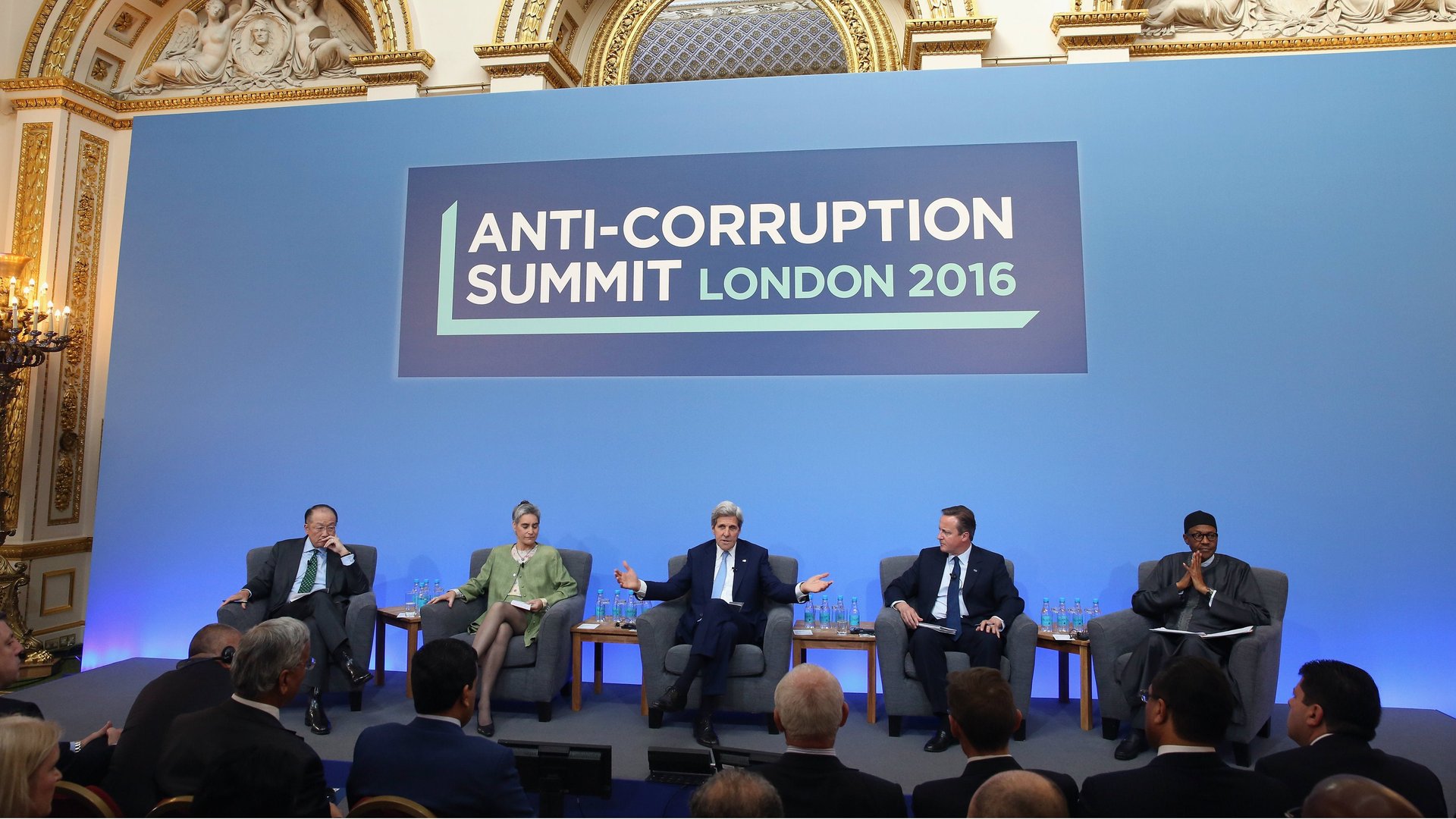Exposing corruption is about to become a lucrative gig in Nigeria
Since taking office in May last year, Nigeria’s president, Muhammadu Buhari, has made fighting corruption in government a central goal of his administration. Within months of becoming president, Buhari’s government arrested and began prosecuting several highly ranked members of his predecessor’s government for the misappropriation of billions of dollars earmarked to fight a devastating insurgency by the terrorist group Boko Haram.


Since taking office in May last year, Nigeria’s president, Muhammadu Buhari, has made fighting corruption in government a central goal of his administration. Within months of becoming president, Buhari’s government arrested and began prosecuting several highly ranked members of his predecessor’s government for the misappropriation of billions of dollars earmarked to fight a devastating insurgency by the terrorist group Boko Haram.
Despite these efforts, a number of corruption scandals have still broken out within Buhari’s government, illustrating how difficult it has been for the president’s strong anti-corruption stance to permeate through even his own administration. The most high profile, a $8 million relief fund scandal currently being investigated by the senate, saw the diversion of funds originally meant for the rehabilitation of Nigeria’s northeast, which has been devastated by Boko Haram. Corruption in Nigeria is so endemic that the country frequently ranks amongst the worst on global corruption indices—in both 2014 and 2015, Nigeria ranked 136 out of 176 countries on Transparency International’s Corruption Perception Index.
To step up his campaign, president Buhari has launched a whistle-blowing policy for Nigerians who provide reliable information on corruption-related offences. The policy is mainly targeted at workers in Nigeria’s vast federal civil service, consisting of more than 80,000 staff, which is known for its pervasive lack of accountability. As an incentive, whistle-blowers will be entitled to 5% of recovered funds if the information provided results in the recovery of looted cash. Though already approved by the president, federal lawmakers are currently discussing a bill to turn the policy into law, which would prevent a future administration from cancelling it.
Global Financial Integrity estimates that Nigeria has lost more than $157 billion to illicit transactions of varying amounts in the past decade. If the current policy had been in place, whistle-blowers could have earned nearly $8 billion—if the stolen amounts been reported and successfully recovered.
As part of the policy, Kemi Adeosun, Nigeria’s finance minister, says the whistle-blowers ”will be protected” and kept anonymous. Adeosun also said that should whistle-blowers suffer “harassment, intimidation or victimisation” for providing information, “restitution” would be made, although she did not specify what that would entail.